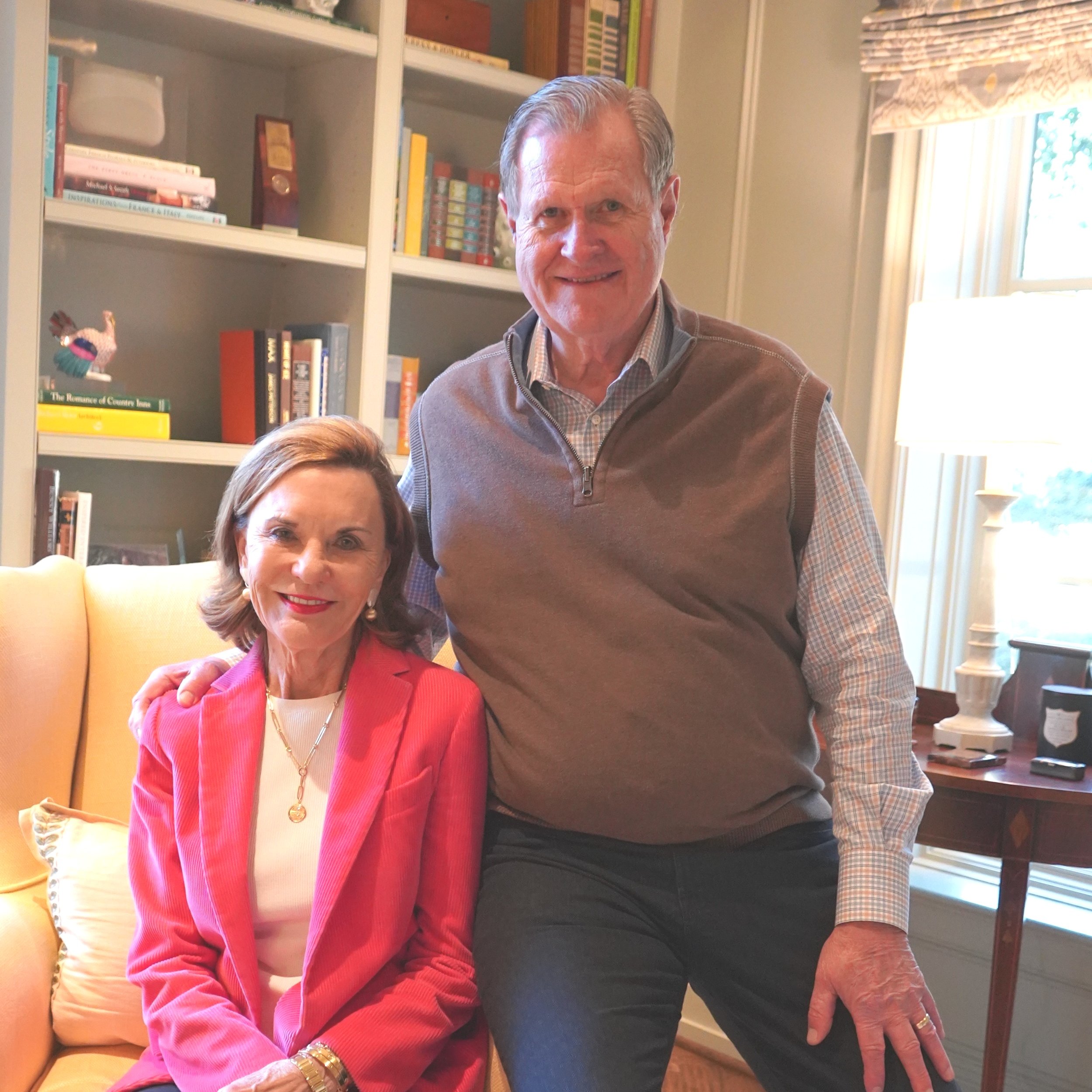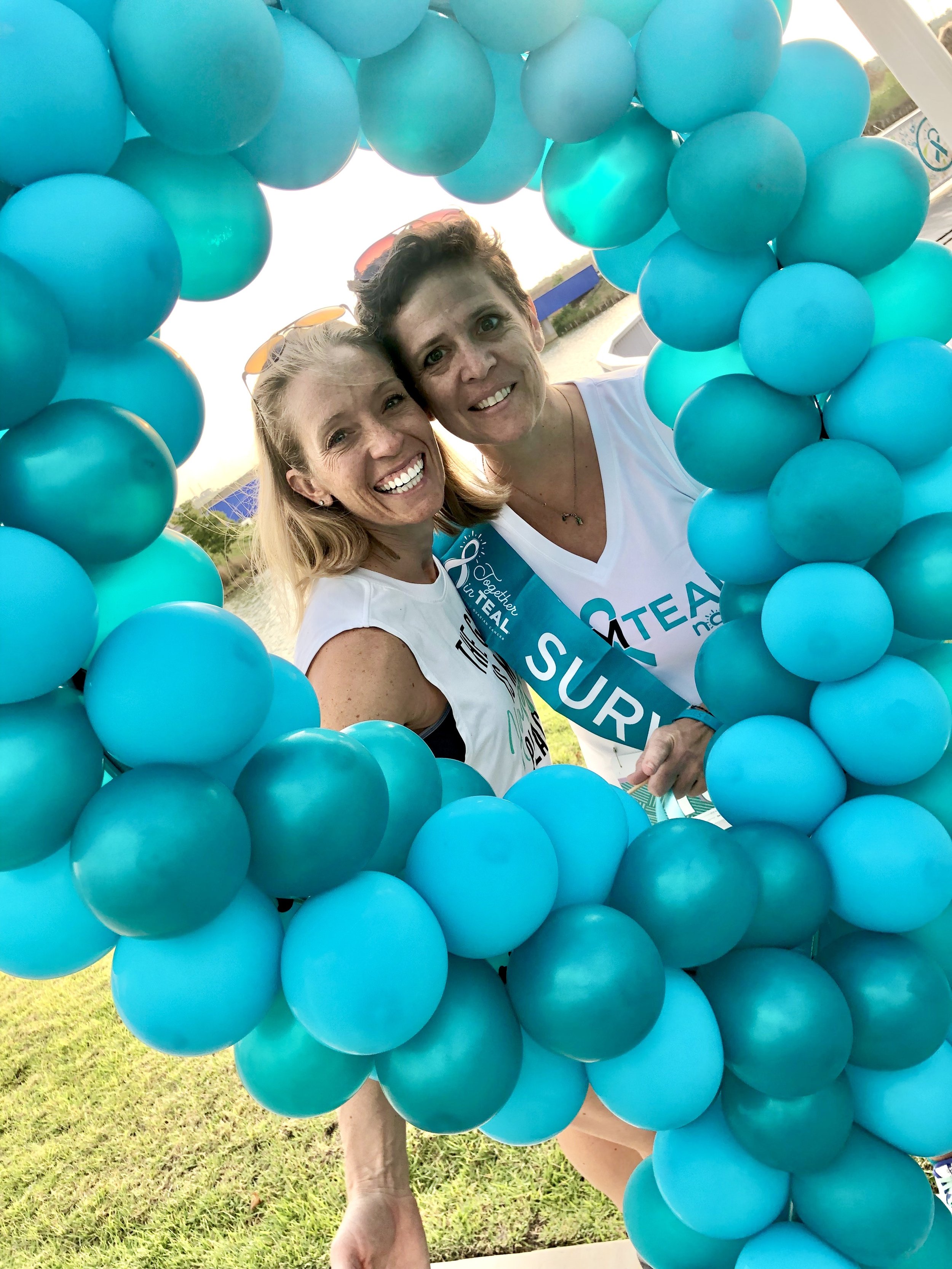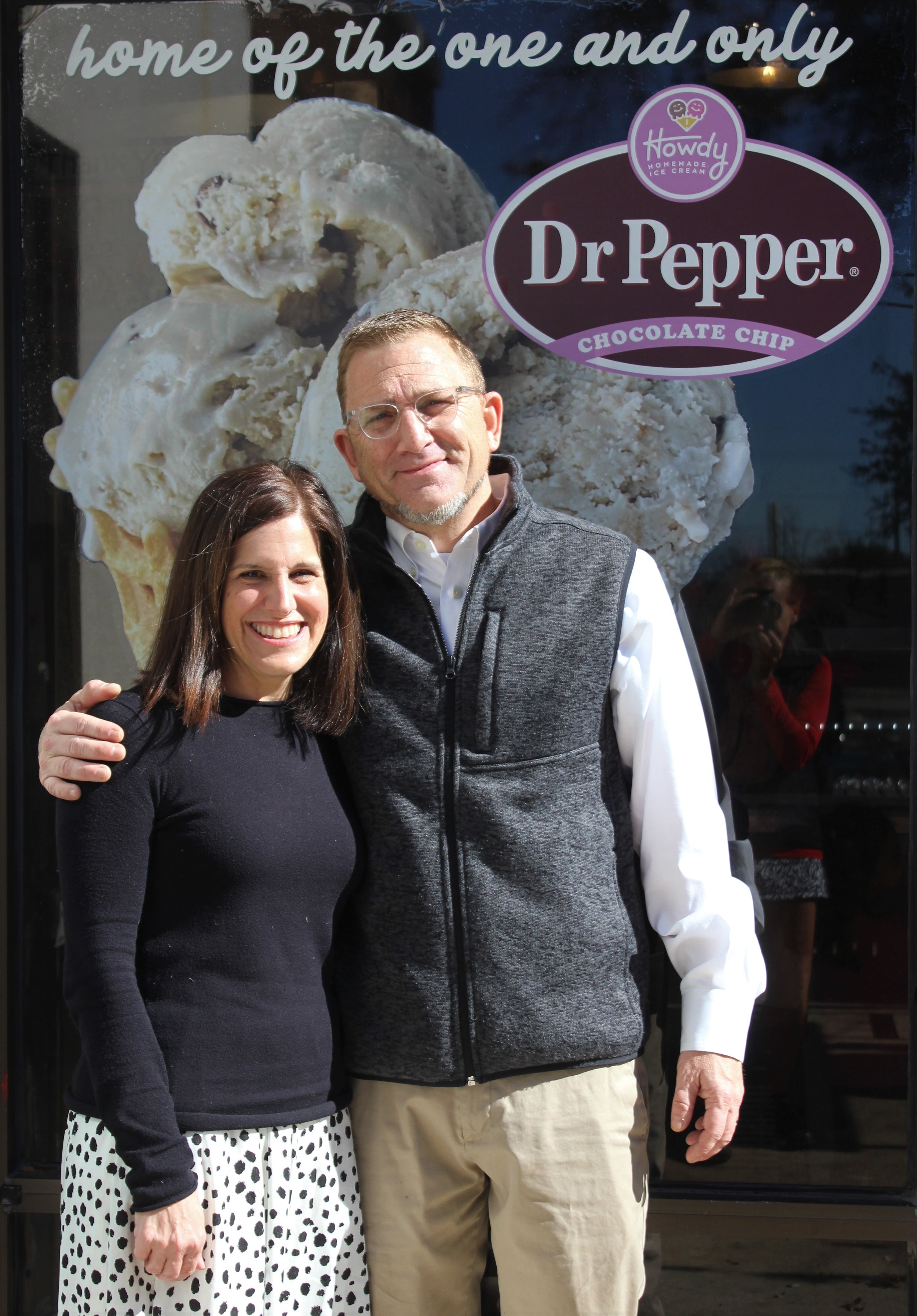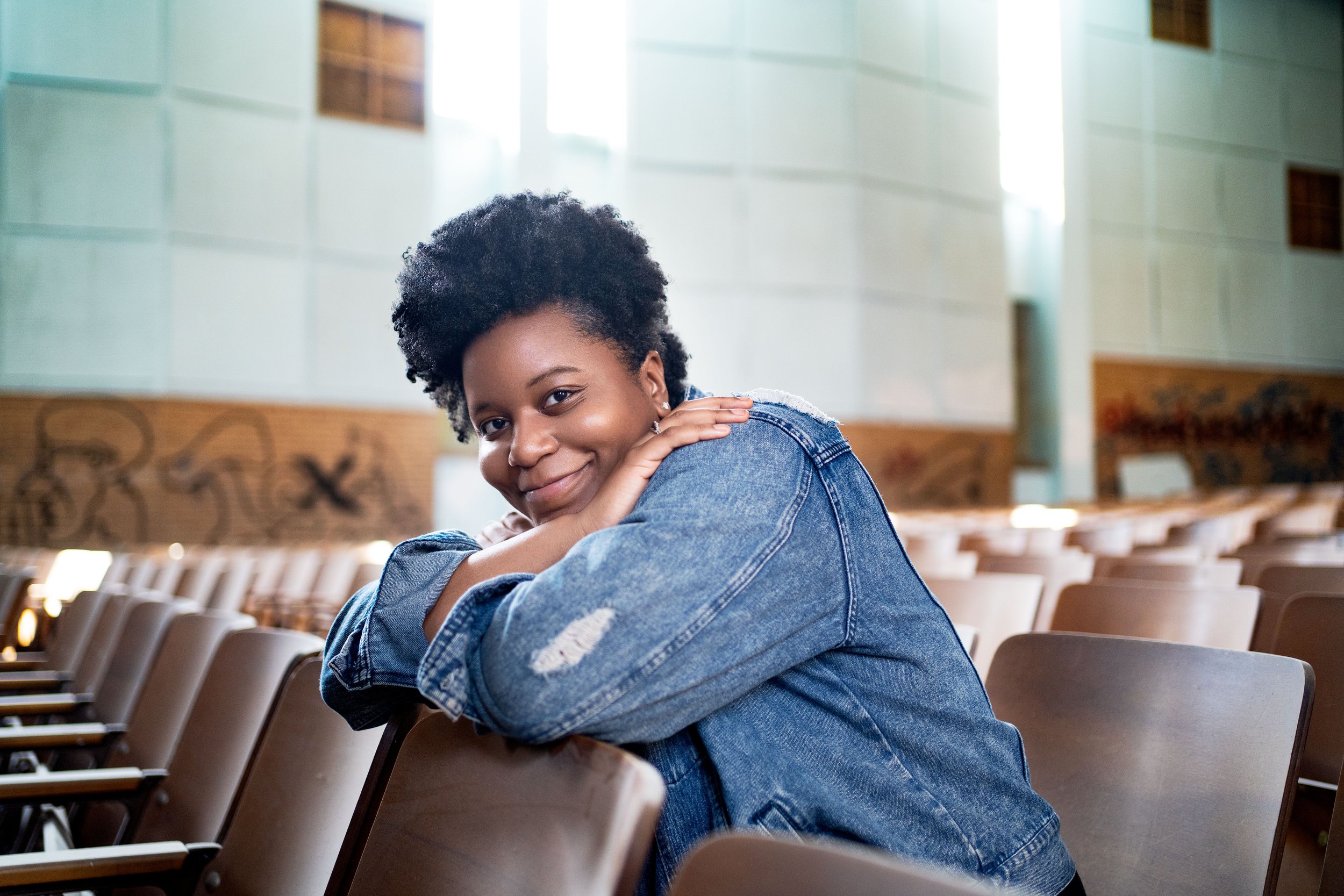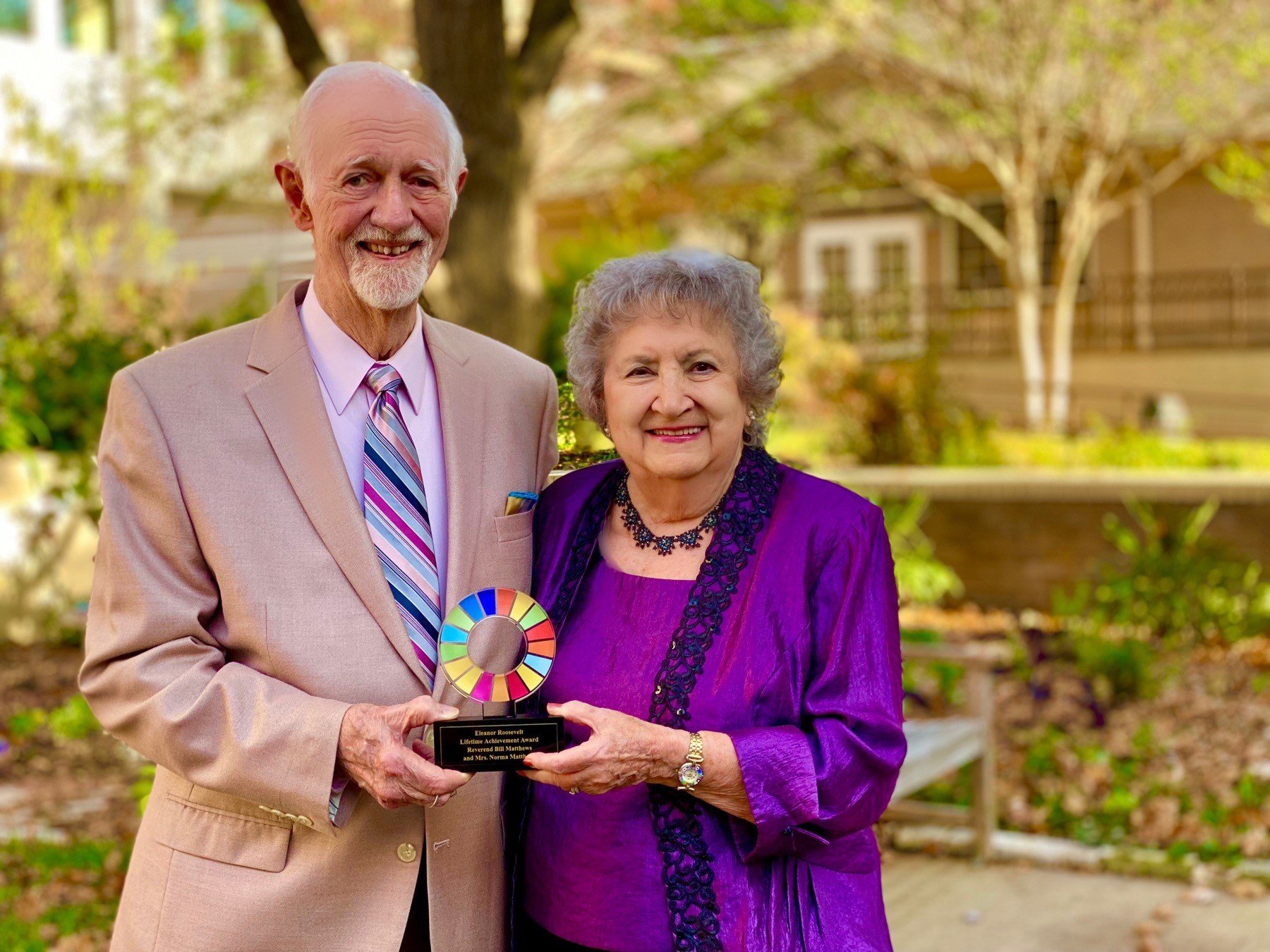Published July 24, 2018 at 4:39pm.
Story and photos by Mary Martin.
Growing up in Louisiana, Brandon Friedman only knew about one kind of tea – iced tea. The American South drinks the cold, sweet tea by the gallon, but it wasn’t until Brandon left the country that he experienced a true tea culture.
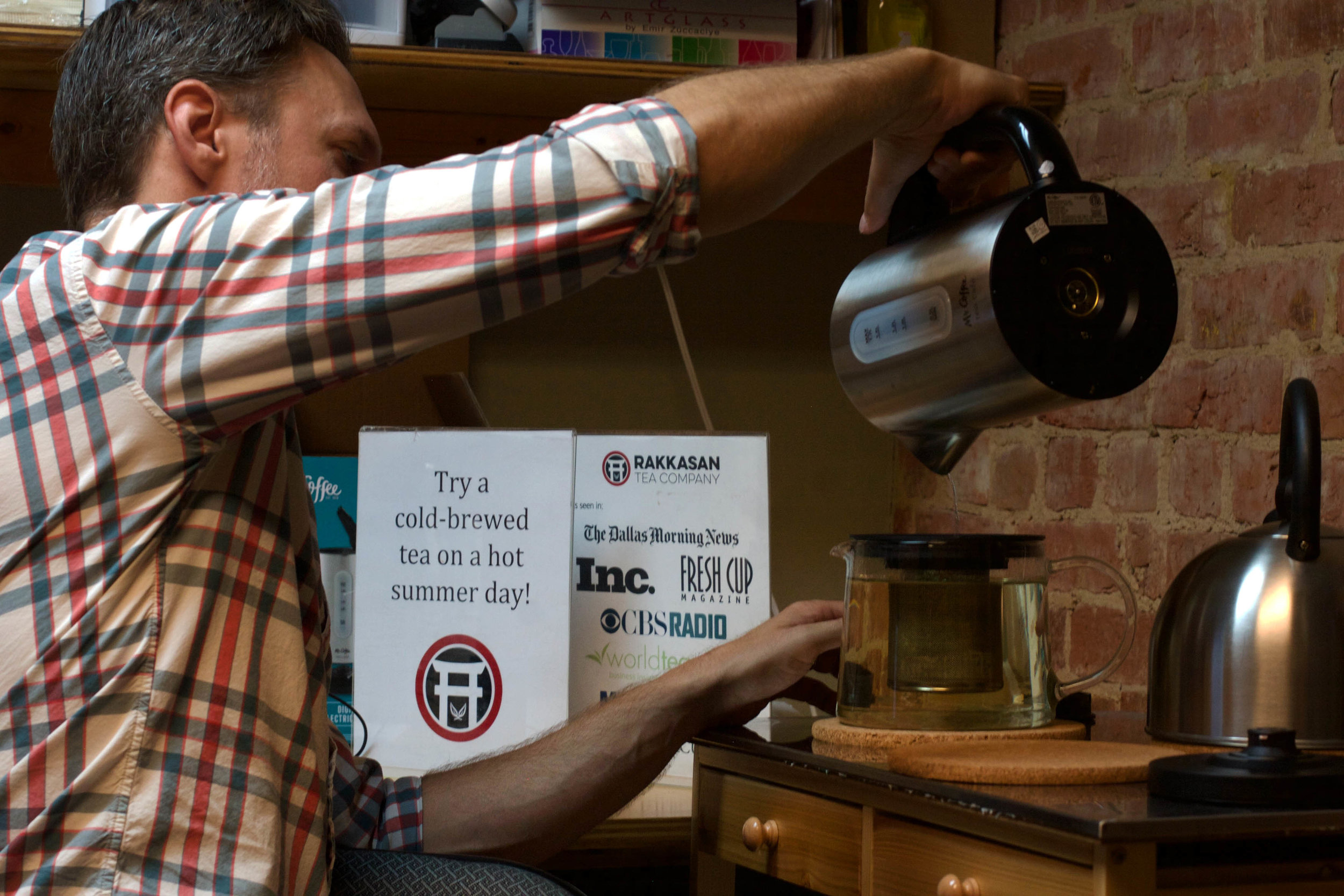
“In Iraq, we didn’t do anything unless it was over tea,” Brandon said while brewing a pot of delicate loose leaf lemongrass. He served as an infantry officer in the Army’s 101st Airborne Division in both Afghanistan and Iraq, beginning in peacetime in 2000 before leaving in 2004 after two combat tours. No matter how intense the situation – strategic meetings or visiting with interpreters, there was plenty of hot tea. Served with several spoonfuls of sugar, the strong black tea was offered in small glasses to every guest.
When Brandon left the military in 2004, he attended UT Dallas and wrote his book, The War I Always Wanted, a memoir detailing his experience in the military. After graduation, Brandon worked for VoteVets.org before setting out for D.C., serving first with the Department of Veterans Affairs and then as the Deputy Assistant Secretary for Public Affairs at the Department of Housing and Urban Development. His experiences led to his co-founding of a D.C.-based public relations firm in 2015, but it didn’t take much time for Brandon to realize his passion was not there. “I wanted to sell a product,” he said. “I wanted to come back to tea.”
Brandon’s memories of traveling through the middle east, drinking tea at every stop, impacted his outlook in a deep way. “America has a coffee culture, but coffee is a solitary drink. You drink your coffee in the morning before interacting with other people,” Brandon shared. “But tea culture is different. Tea has a much greater social aspect and I couldn’t find that here.” Out of that desire for community, along with a passion for supporting the economic development of post-conflict areas, Rakkasan Tea was born.
Beginning on Kickstarter in 2017, the Rakkasan Tea Company met and exceeded their start up goal of $30,000 while sharing about their vision of importing high quality, ethically-sourced loose leaf tea from post-conflict countries. And Brandon’s first partner set an example for how he’d like his company to grow – one veteran hire at a time. Terrence Kamauf, or TK for short, joined Rakkasan as Chief Operations Officer, leaving his stable job in the oil and energy sector in Houston. Before joining the Army Special Forces as a Green Beret, TK served with Brandon in the 101st Airborne Division and he was a natural choice for a partner in this new venture. “I came up from Houston to Dallas several times to help Brandon package teas for new orders,” TK shared. “We worked late and started again early the next morning before I would need to drive back. But I moved my family here in January and knew it would work because Brandon didn’t have a plan b.”
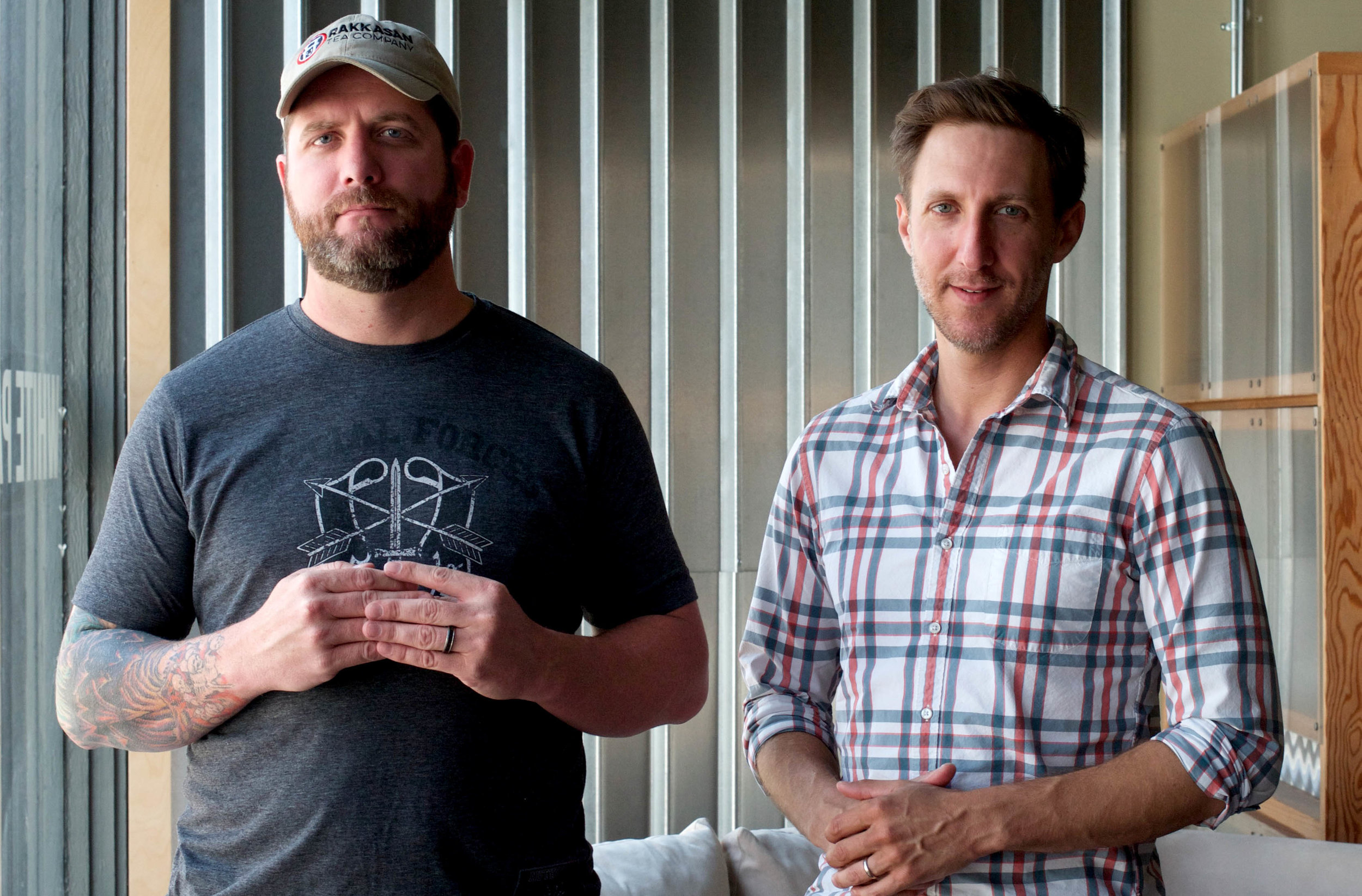
Boxes of loose leaf tea from around the world line the walls of their small office space. Brandon’s criteria for what he will import is strict: It must be grown organically (not necessarily certified, which is difficult for smaller growers), the farm must be sustainably and ethically run, and the grower must deliver a clean product. And most importantly, Brandon has to like it – “we don’t sell anything we don’t drink.”
Some of the first Rakkasan tea came from Vietnam. After a year of searching to find a supplier who wasn’t using pesticides, a British expat connected Brandon to a grower who was harvesting black tea from 40’ tall wild tea trees along the far northern edge of the country. The old growth trees are too high to spray with pesticides, which are unnecessary due to the cool climate.
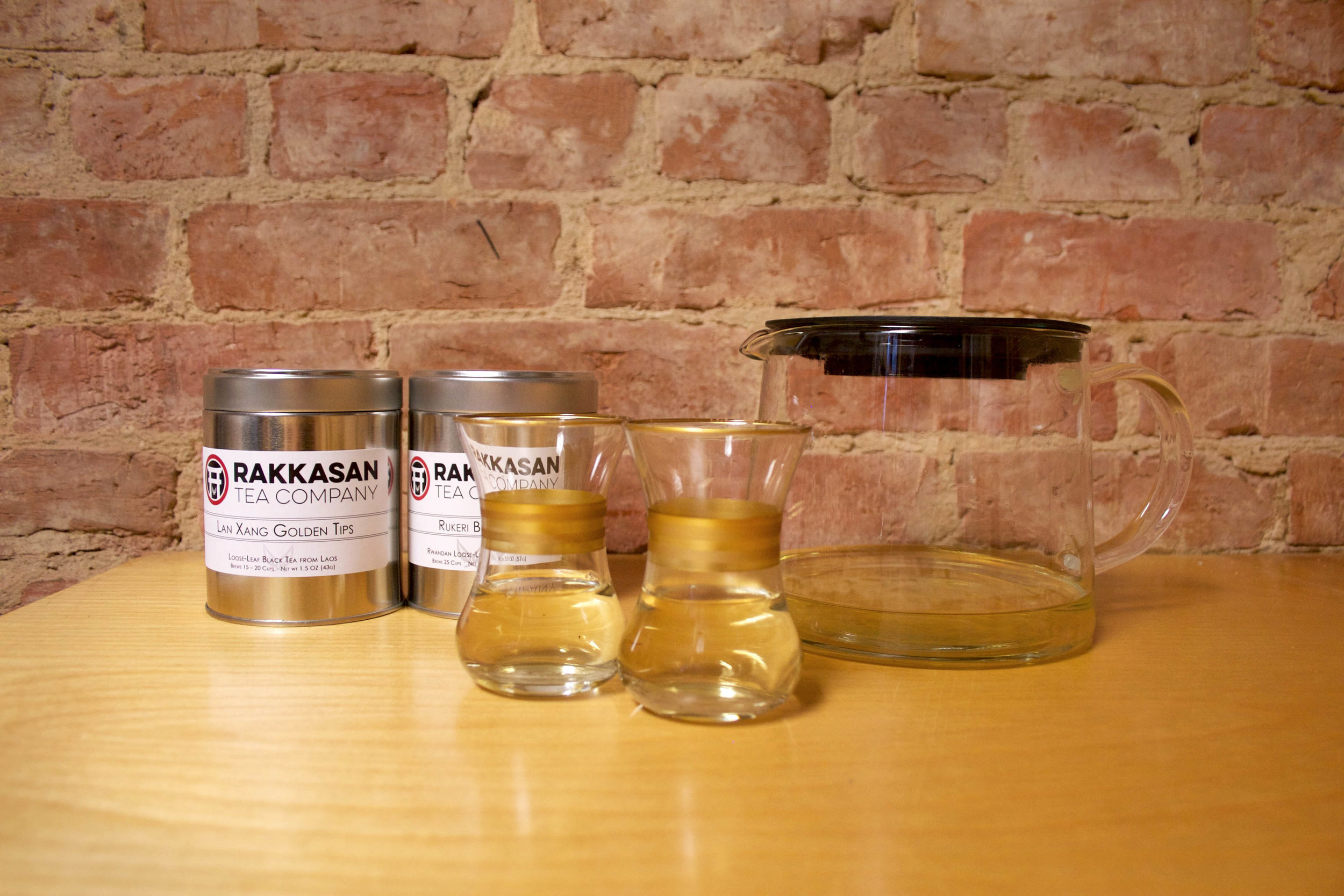
Other teas come from Laos, where during the Vietnam War, the US military dropped 260 million cluster bombs – more bombs than were dropped on Europe during all of WWII. A larger tea estate provides tea from Rwanda, an industry that was devastated and rebuilt after that country’s civil war and genocide in the early 1990’s. A rare Golden Tips tea is imported from a small farm in Nepal, tucked in the Himalayan mountains. The Rakkasan team continues to look for interesting teas from small farms that can be brought to the U.S. market and create development in areas of the world still rebuilding after conflict. “We’ve seen what war can do to a community,” Brandon said with a sense of clarity.
While Rakkasan is still in its early days, they see themselves as part of the fabric of Deep Ellum, with every sale helping the neighborhood to grow. As they expand, they have plans for more veterans joining the team, and a larger space for a community tasting room. If you want to catch them in person, Rakkasan has a booth at the Coppell Farmers Market each Saturday, or you might run into Brandon and TK at Revolver Taco. And if you’d like to pick up some Rakkasan Tea, you can stop by 1890 Marketplace in Dallas, Fair & Square Imports in McKinney, or Women’s Gift Exchange in Sherman. The teas can also be purchased online at rakkasantea.com. And don’t worry – we had to ask Brandon where the name Rakkasan came from! He explained that Rakkasan is an old Japanese word for a parachute, literally translated “falling down umbrella” and is the term now used to describe the airborne infantry regiment where he and TK both served. Their history with wartime is now bringing communities together from far-reaching corners of the world, all over a cup of tea.
More Good Stories
Featured
When Kathy and Larry Helm heard about The Senior Source’s 60th Birthday Diamond Dance-Off, they knew they had to put on their dancing shoes! For the Helms, this event combined two of their passions into one. Celebrating and supporting The Senior Source, a Dallas-area nonprofit that has been serving older adults for 60 years, and dancing together, which they have been doing since they were high school sweethearts. Both Kathy and Larry have chaired the board of directors of The Senior Source and have been proud supporters since 1998. It seemed only fitting they should be voted into the finals to dance on stage at Klyde Warren Park this past summer.
In 2020, more than 912,000 women were diagnosed with some form of cancer in the United States alone. During that same pandemic year, countless medical appointments were canceled while people were social distancing, and yet still each day nearly 2,500 women heard the news, “you have cancer.” There is no doubt that these words can be crushing to hear, but what’s equally crushing is the lack of tangible, encouraging support that exists to help women feel beautiful, strong or “normal” before, during and after cancer treatment.
When Tom Landis opened the doors to Howdy Homemade in 2015, he didn’t have a business plan. He had a people plan. And by creating a space where teens and adults with disabilities can find meaningful employment, he is impacting lives throughout our community and challenging business leaders to become more inclusive in their hiring practices.
Have you ever met someone with great energy and just inspired you to be a better you? Nitashia Johnson is a creator who believes by showing the love and beauty in the world it will be contagious and make an impact. She is an encourager and knows what “never give up” means. Nitashia is a multimedia artist who works in photography, video, visual arts and graphic design. Her spirit for art and teaching is abundant and the city of Dallas is fortunate to have her in the community.
The United Nations Association Dallas Chapter (DUNA) honored Rev. Bill and Norma Matthews for their ongoing commitment, helping advance the United Nations Sustainable Development Goals agenda by promoting peace and well-being.

